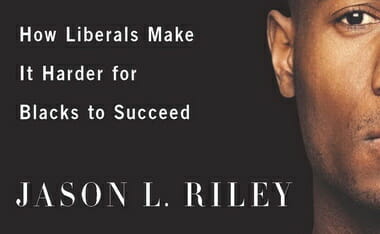Michael Medved responds to the food stamp issue that Democrats and the Left are bringing up. I take a clip from yesterday’s show and insert it into the middle of today’s show to give the listener some ammunition when these banal arguments come up. At the 5:17 mark, the caller mentions taxes for the millionaires as part of his argument. Medved Responds well to this challenge at the… and at the 6:24 mark you hear the caller respond with a bumper sticker jingle. In other words, talking about facts matters little to these people, but at least you will be able to influence those around you eavesdropping in on the conversation.
- For some good food stamp news items, see FOX NEWS.
- For my own “comparison,” see my post, COMPARE AND CONTRAST.
I posted this video on LIVELEAK, and a comment got me “clicking around” the internet to test what the person said. Here is the comment:
For every $1 spent on food stamps there’s a $1.80 stimulative effect to the economy. The poor person spends the funds at the grocery store, which allows the store to employ more people, the store spends the funds to buy more food which helps farmers and food producers. On the other hand, tax cuts for the wealthy have a negative effect on the economy, it just doesn’t trickle down enough so it drains economic growth. Plus it helps feed poor people that can’t afford to eat. — Warren H.
First, it should be noted that this idea was championed mainly by Moody’s chief economist Mark Zandi, a hard-core Keynesian. However, it should be noted that unfortunately “for Zandi, there has never been any empirical evidence of the Keynesian multiplier. Government doesn’t take one dollar and turn it into more by spending it. God doesn’t live in the White House, no matter how much Paul Krugman prays.” (AMERICAN THINKER)
HERITAGE FOUNDATION puts it like this:
…The Keynesian argument also assumes that consumption spending adds to immediate economic growth while savings do not. By this reasoning, unemployment benefits, food stamps, and low-income tax rebates are among the most effective stimulus policies because of their likelihood to be consumed rather than saved.
Taking this analysis to its logical extreme, Mark Zandi of Economy.com has boiled down the government’s influence on America’s broad and diverse $14 trillion economy into a simple menu of stimulus policy options, whereby Congress can decide how much economic growth it wants and then pull the appropriate levers. Zandi asserts that for each dollar of new government spending: temporary food stamps adds $1.73 to the economy, extended unemployment benefits adds $1.63, increased infrastructure spending adds $1.59, and aid to state and local governments adds $1.38. Jointly, these figures imply that, in a recession, a typical dollar in new deficit spending expands the economy by roughly $1.50. Over the past 40 years, this idea of government spending as stimulus has fallen out of favor among many economists. As this paper shows, it is contradicted both by empirical data and economic logic…
They then respond to the above:
The Evidence is In
Economic data contradict Keynesian stimulus theory. If deficits represented “new dollars” in the economy, the record $1.2 trillion in FY 2009 deficit spending that began in October 2008–well before the stimulus added $200 billion more–would have already overheated the economy. Yet despite the historic 7 percent increase in GDP deficit spending over the previous year, the economy shrank by 2.3 percent in FY 2009. To argue that deficits represent new money injected into the economy is to argue that the economy would have contracted by 9.3 percent without this “infusion” of added deficit spending (or even more, given the Keynesian multiplier effect that was supposed to further boost the impact). That is simply not plausible, and few if any economists have claimed otherwise.
And if the original $1.2 trillion in deficit spending failed to slow the economy’s slide, there was no reason to believe that adding $200 billion more in 2009 deficit spending from the stimulus bill would suddenly do the trick. Proponents of yet another stimulus should answer the following questions: (1) If nearly $1.4 trillion budget deficits are not enough stimulus, how much is enough? (2) If Keynesian stimulus repeatedly fails, why still rely on the theory?
This is no longer a theoretical exercise. The idea that increased deficit spending can cure recessions has been tested repeatedly, and it has failed repeatedly. The economic models that assert that every $1 of deficit spending grows the economy by $1.50 cannot explain why $1.4 trillion in deficit spending did not create a $2.1 trillion explosion of new economic activity.
CATO likewise notes that the numbers were fudged to provide exaggerated outcomes:
Food stamps are effective economic stimulus. Led by Mark Zandi and other Keynesian economists, food-stamp advocates have made wildly exaggerated claims about the program’s role in stimulating the economy. Zandi, for instance, claims that “extending food stamps is the most effective way to prime the economy’s pump.”
But aside from the fact that those economic models just as well predict an alien invasion would be a boon to the economy, there is little evidence to support the theory. Even the Agriculture Department’s own inspector general concluded that it was unable to determine whether the additional dollars in the stimulus’s food-stamp expansion were in any way effective in meeting the 2009 Recovery Act’s goals. Three of the four performance measures the program was supposed to use, the office found, “reflected outputs, such as the dollar amount of benefits issued and administrative costs expended” and did not provide any insight into outcomes.
On the other hand, we do know that a failure to get government spending under control will have long-term economic consequences. Food stamps are hardly the major cause of deficits and debt — that distinction lies with middle-class entitlements such as Social Security and Medicare — but every little bit helps.
Valerie Jarrett and Nancy Pelosi said similar things:
- JARRETT: Let’s face it: Even though we had a terrible economic crisis three years ago, throughout our country many people were suffering before the last three years, particularly in the black community. And so we need to make sure that we continue to support that important safety net. It not only is good for the family, but it’s good for the economy. People who receive that unemployment check go out and spend it and help stimulate the economy, so that’s healthy as well.
- PELOSI: Economists agree that unemployment benefits remain one of the best ways to grow the economy in a very immediate way. It immediately injects demand into our markets and increases employment. For every dollar spent on unemployment benefits, the economy grows by, according to one estimate, $1.52; by others, $2. So somewhere in that range, but much more than is spent on it…. We have a responsibility to the American people. These are people who have played by the rules, have lost their job through no fault of their own, and need these benefits in order to survive. So we must extend this insurance before the end of the year and we must extend it for at least a year. And I’d like to see that as we go forward before this year ends. Hopefully it could be part of a budget, but it doesn’t have to be part of a budget. It could be in its own vehicle as it goes forward, but it’s something we must consider.
Again, similar responses happened then as well:
Economists at the Heritage Foundation have written about this claim, explaining:
The theory behind extending UI [Unemployment Insurance] benefits as a stimulus assumes that unemployed workers will immediately spend any additional UI payments, instantly increasing consumption, boosting aggregate demand, and stimulating the economy.
This is not a new idea. Economists in the 1960s thought that unemployment insurance could function as an important automatic economic stabilizer. Empirical research in the 1970s demonstrated that this was not the case, and studies since then have concluded that unemployment insurance plays at best a small role in stabilizing the economy. Empirical research at the state level also finds that UI plays a negligible role in stimulating the economy.
Studies that have found that UI stimulates the economy effectively — such as studies by the Congressional Budget Office and economist Mark Zandi — rely on two faulty assumptions, thereby drawing a false conclusion:
They assume that unemployed workers spend every dollar of additional UI benefits almost immediately and that extending unemployment insurance does not affect workers’ behavior. In that case, every dollar spent on unemployment insurance adds a dollar to consumption without any direct effects on the labor market. Both assumptions are false.
Unemployment Insurance Prolongs Unemployment. One of the most thoroughly established results in labor economics is the effect of unemployment benefits on unemployed workers’ behavior. labor economists agree that extended unemployment benefits cause workers to remain unemployed longer than they otherwise would.
This occurs for obvious reasons: Workers respond to incentives. Unemployment benefits reduce the incentive and the pressure to find a new job by making it less costly to remain without work…..




